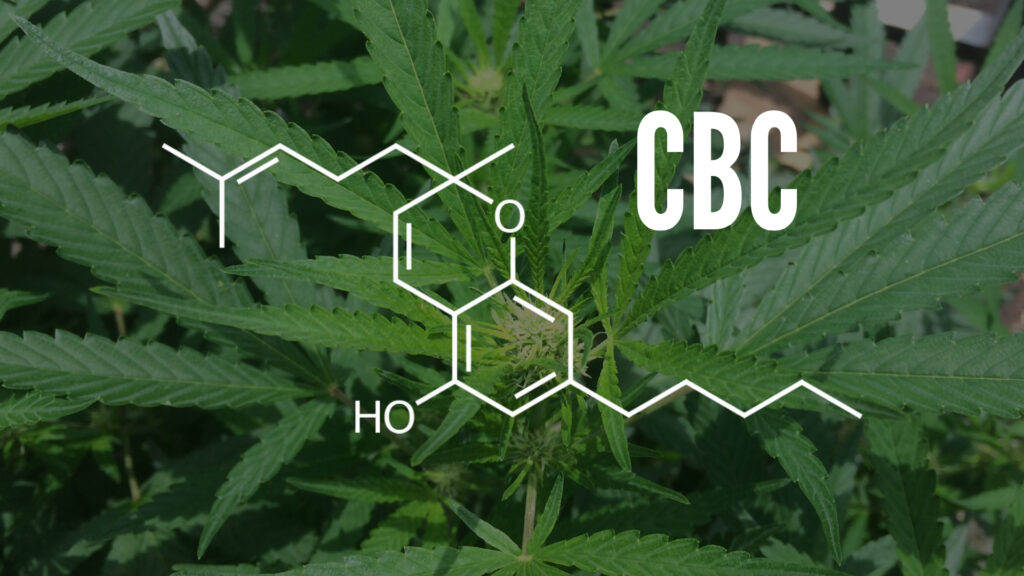Cannabichromene (CBC), discovered in the 1960s, is the third most abundant cannabinoid found in the cannabis plant, behind CBD and THC. However, CBC remains opaque and little understood. What is known is that CBC has considerable potential to cure inflammation and could be extremely beneficial in pain relief and encouraging the creation of new brain cells.
We also know that CBC interacts with other cannabinoids like as THC, CBD, CBG, and CBN, enhancing their anti-inflammatory and other medicinal benefits. This contribution to the entourage effect makes CBC a particularly versatile cannabinoid worthy of future investigation.

CBC is a powerful anti-inflammatory that may be more effective than CBD as an antidepressant. CBC, on the other hand, does not induce a euphoric high like THC.
CBC, on the other hand, binds to cannabinoid receptors in the human body, including those associated with pain perception.
Furthermore, CBC contains anti-inflammatory, pain-relieving, antiviral, anti-tumor, and bone-growth-stimulating characteristics that may be up to ten times more effective than CBD for the treatment of stress and anxiety.
CBC, like CBD, is not psychoactive. This inability to induce a “high” distinguishes CBC from THC.
Furthermore, CBC behaves differently within the endocannabinoid system (ECS), which is the master regulator of physiological functions. CBC differs from other cannabinoids in that it can interact with receptors outside of the ECS.
CBC appears to have a notably significant effect on pain and inflammation via its interaction with different receptors, maybe even stronger than highly addictive opioids. With additional research and testing, CBC could become a useful weapon in the fight against opiate addiction.
While research into the benefits of CBC is still scarce, the research is promising. Here is what some of the most recent scientific evidence into CBC suggests.
CBC may be particularly beneficial in the treatment of anxiety and depression, and it mixes with THC and CBD to provide an entourage effect of mood-boosting effects. CBC and CBG may be more effective than THC and CBD in treating anxiety and depression, but more research is needed to back up growing anecdotal evidence.
CBC has been proven to be potentially effective in the treatment of pain. CBC may also desensitise specific channels and, when combined with THC and CBD, form a highly strong anti-inflammatory. CBC may have an effect on the receptor involved in pain sensing and temperature regulation in the body.
CBC was shown to be the second-most effective cannabinoid for inhibiting the growth of new cancer cells in one study on the anti-cancer properties of cannabinoids other than THC. CBG and CBC were revealed to be highly effective anticancer agents in this investigation.
Part of CBC’s efficacy in fighting cancer appears to be tied to its capacity to boost anandamide levels in the body. Anandamide is a neurotransmitter that helps with pain, mood, appetite, memory, fertility, and other important activities.
Patients with estrogen-positive breast cancer should be cautious about raising anandamide levels in the body, especially when using THC. THC’s estrogen-promoting effects may be reduced by CBC and CBD while retaining its cancer-fighting qualities.
CBC has been shown to fight breast cancer both in vitro (in the womb) and in vivo (in a living organism), suggesting that CBC and other cannabinoids may be able to prevent cancer from developing in the first place. CBC in combination with THC and CBD may be particularly useful in the treatment of cancer and can be used as an adjuvant to chemotherapy.
As a compound that promotes healthy brain function, CBC has shown particular promise.
According to one 2013 study, CBC has a good effect on the cells responsible for brain development in children and plays a key function in adult learning and memory.
Because of its therapeutic qualities, CBC has the potential to be very effective in the treatment of neurological disorders and brain pathologies such as traumatic brain injury (TBI), multiple sclerosis (MS), Alzheimer’s disease, and Parkinson’s disease.
CBC has strong anti-inflammatory capabilities and, like CBD, inhibits excessive lipid production in the sebaceous (oil-producing) glands. Because clogged sebaceous glands are linked to acne formation, CBC may aid in the treatment of outbreaks.
Currently, nothing is known about CBC’s potential negative effects and medication interactions. More information about this cannabinoid may become accessible as research into it continues.